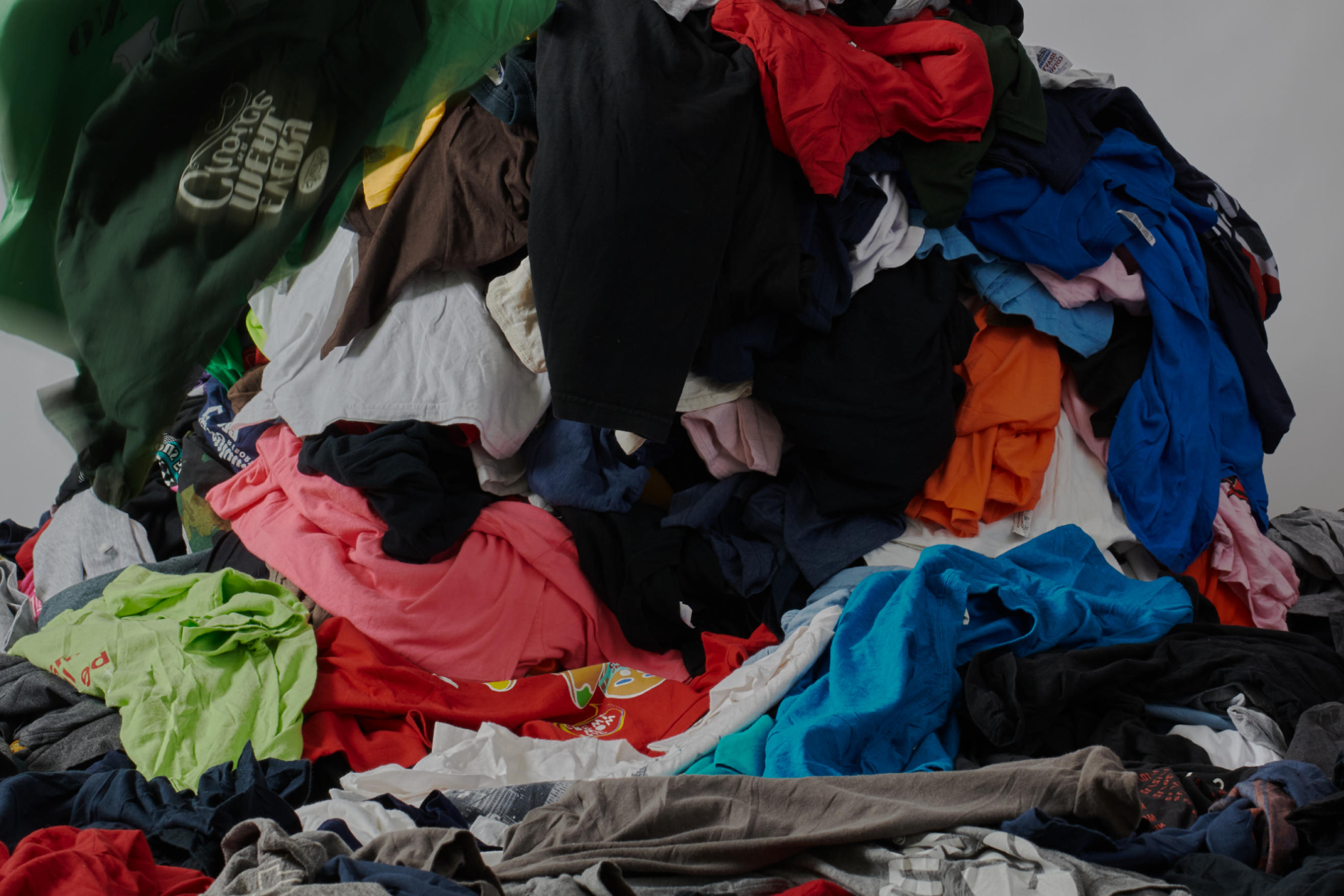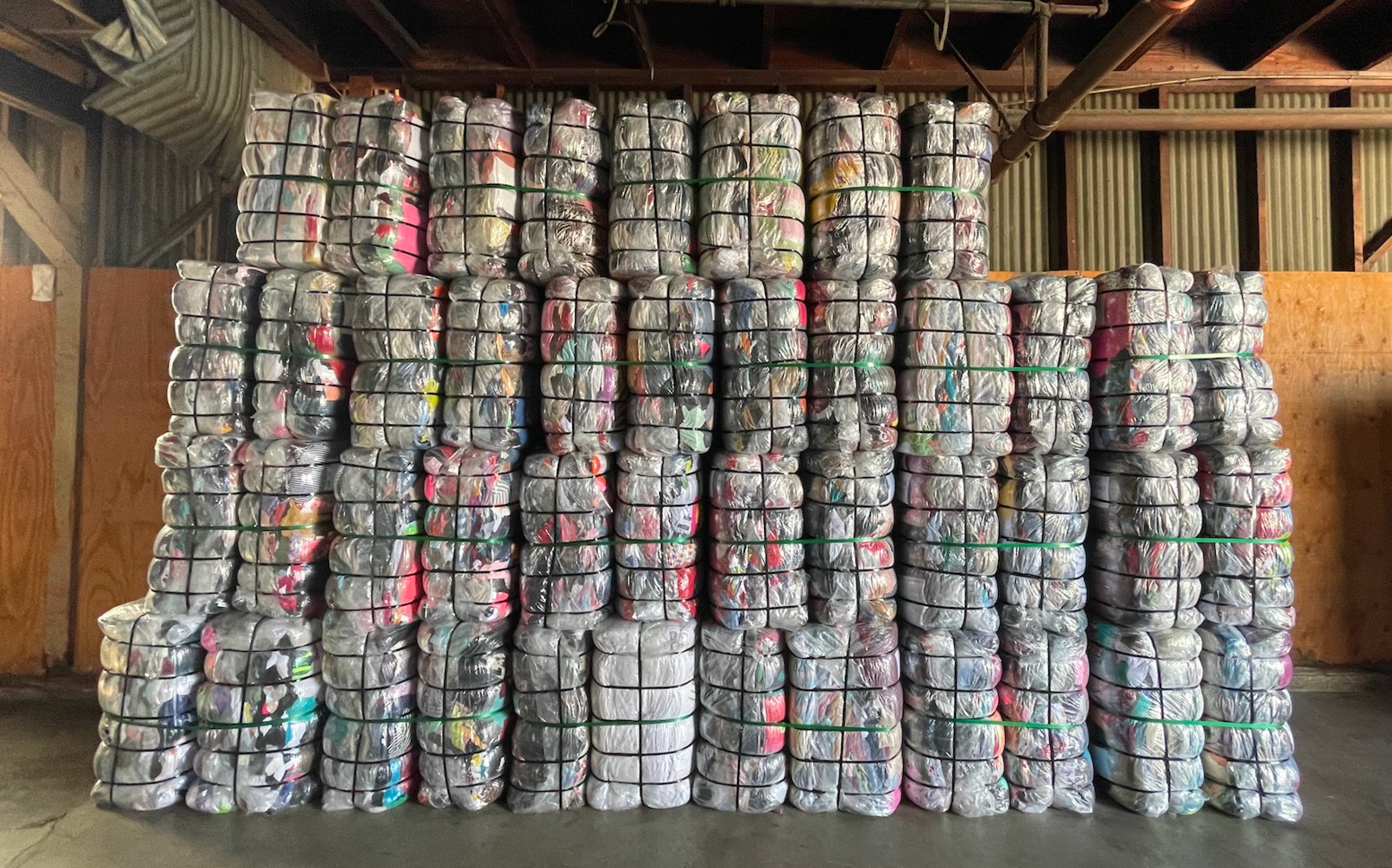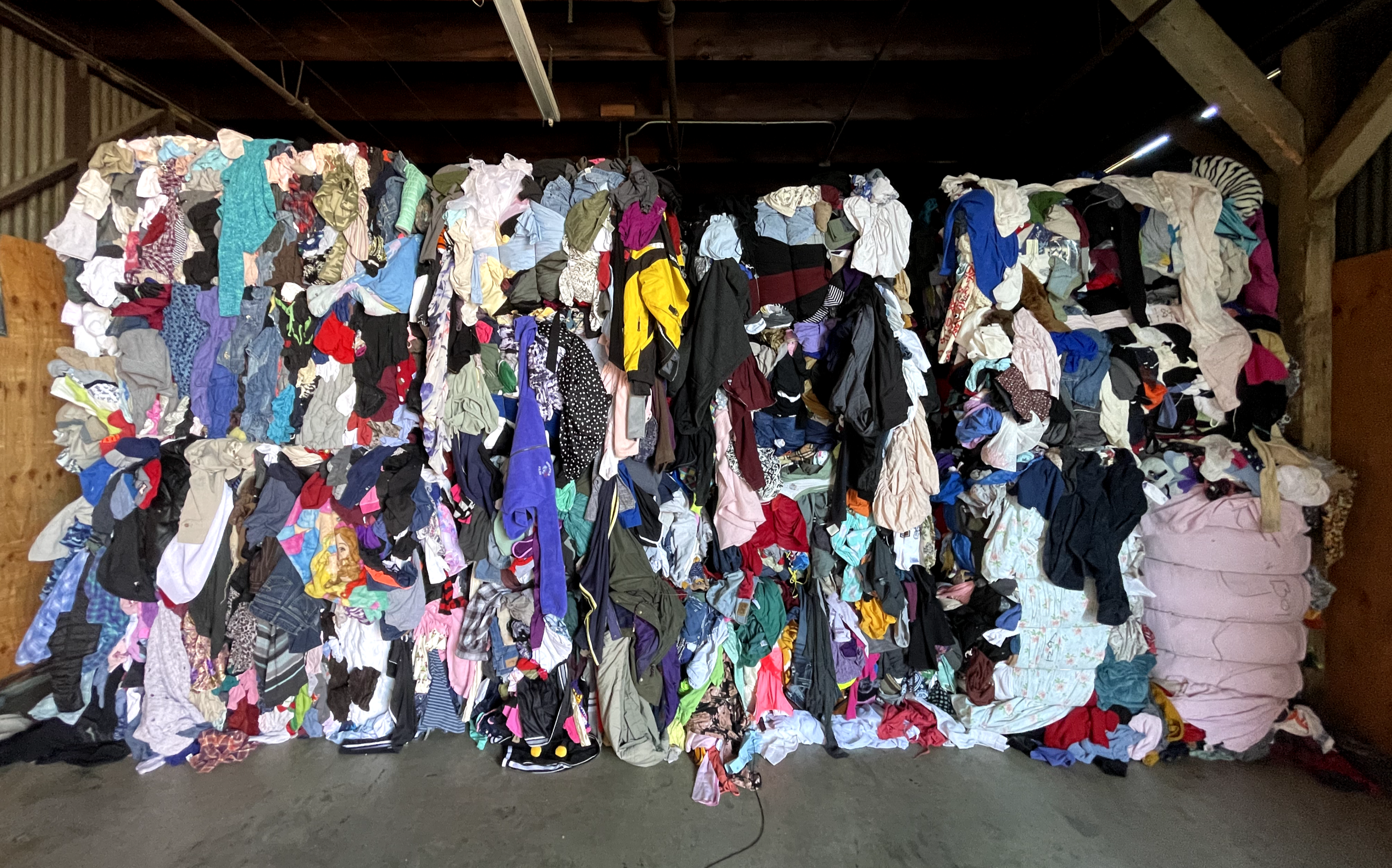Introducing SB 707
In September 2024, California took a major step toward sustainability with the passage of SB 707, also known as the Responsible Textile Recovery Act of 2024 (1). SB 707 addresses one of fashion’s most significant challenges: excessive waste.
The bill specifically targets textile and apparel waste and pushes for increased responsibility from clothing and textile producers. From recycled clothing initiatives to circularity, this bill forces brands to consider end-of-life strategies for products.
Let’s explore what SB 707 entails, its importance for the industry, how businesses can prepare to comply, and why Everywhere is well-positioned to catalyze compliance among producers across the state.

Understanding California SB 707
The Responsible Textile Recovery Act of 2024 requires clothing and textile producers that sell covered products in California to take responsibility for the full lifecycle of their products. This means “providing free, convenient, and safe collection, transportation, repair, recycling, and otherwise proper management” of textiles and apparel when they’re no longer wanted or needed.
However, individual brands and producers aren’t solely responsible for this new set of requirements. Instead, the bill calls for the creation of one or more membership-based “producer responsibility organizations,” or PROs.
These collective organizations have a broad mandate. PROs will not only be held accountable for the types of products produced by member brands and organizations, but must also provide cradle-to-cradle solutions for all apparel and textile items covered in the bill. This provision makes it almost impossible for any one organization to go it alone, and suggests the need for strong collaboration across the apparel, textile, and end-of-life industries.
Once formed and approved by the state, each PRO’s governing body will consist of representatives from member organizations. Broader stakeholders involved in end-of-life processes (such as collection, sorting, and recycling) will conduct a needs assessment and create regulatory compliance plans.
These comprehensive plans, known as “stewardship programs,” must be submitted to the Department of Resources Recycling and Recovery for approval. Plans should outline how PROs intend to collect worn-out clothing, repair or recycle these textiles, and minimize waste within California.

Why SB 707 Matters
Fashion is one of the most waste-intensive industries in the world. Every year, nearly 150 billion garments are produced, and 15-45 billion of them never reach consumers. Unsold clothes, discarded textiles, and end-of-life garments often end up in landfills or incinerators, releasing harmful pollutants into the environment.
Dealing with all this waste is also expensive. According to the office of California State Senator Josh Newman, author of SB 707, roughly 1.2 million tons of textiles were disposed of in California in 2021 (2). Disposal of this waste cost taxpayers over $70 million despite the fact that most of these textiles were reusable or recyclable (3).
A contributor to this unfortunate entanglement of cost, waste, and environmental degradation is fast fashion. A recent McKinsey study reported that from 2000 to 2014, clothing production doubled and the number of garments purchased per capita increased by about 60 percent (4).
Starting with California, SB 707 provides a necessary framework to reduce the United State’s massive textile waste problem. However, the bill’s impact is likely to ripple throughout the fashion industry in the U.S. and beyond.
Known colloquially as ‘the California Effect,’ the phenomenon of other states following California’s environmental lead goes back to the 1970’s when the state led efforts to impose stricter auto emissions regulations (5). More recently, this includes California’s leadership in regulating the energy efficiency and water consumption of appliances, implementing extensive labeling requirements for hazardous materials, and developing energy-efficient building codes.
Implications for Fashion and Textile Brands
Circularity emphasizes repair and reuse, and mandates minimized generation of waste, greenhouse gasses, environmental impacts, environmental justice impacts, and public health impacts. In effect, the new legislation requires the creation of a state-wide circular system for apparel and textiles.
SB 707 is especially relevant to companies committed to circular and recycled clothing and textiles. Companies that already use textile waste to produce recycled clothing or remanufactured fibers, like recycled cotton or polyester, will have a large role to play in shaping the future landscape of California’s garment and textile industries.
Brands currently working in more traditional, linear modalities will need to leverage the expertise, relationships, and experience of ahead-of-the-curve organizations to ensure their products fit into circular systems.
It will be crucial for companies to understand the entire lifecycle of their products, from the moment a garment or textile is created to its end-of-life disposal and how it could be most efficiently repurposed. Developing this knowledge may require consulting and partnering with organizations across the end-of-life process, such as sorting, recycling, and remanufacturing.

Challenges and Opportunities
While SB 707 offers clear environmental benefits, it also presents challenges for brands as they come together under PROs as mandated by the legislation. Creating and maintaining a stewardship program will require significant investment of time, energy, and resources.
Public education is one of the biggest challenges producers will face to implement the bill’s many required processes. This legislative effort to create statewide circular apparel systems ultimately relies on the general population’s engagement with stewardship programs. Producers may have to heavily spend on outreach and educational programming to motivate and incentivize individuals to rethink how they discard items that have traditionally been seen as trash.
Another issue producers will face is the challenge to develop better, more environmentally attuned design strategies that embed circular principles in the products covered by the bill. For example, the text of the bill calls for prioritizing eco-friendly products designed for biodegradability, as well as reduction and/or removal of harmful chemicals, like PFAS, microplastics, and mixed materials blends.
There is also the issue of what it will cost producers to participate in PROs and comply with the statutes in the legislation. Since the collective action called for in the bill represents a wholly new approach to sustainability in fashion and textiles, developing the cost structure will be a challenge of its own.
The bill asks PRO governing bodies to create a unique, “eco-modulated” fee structure that member organizations will pay to cover the cost of collecting, sorting, recycling, etc. This hard cost for individual producers will be ‘modulated’ according to their environmental impact. So, an individual producer’s eco-modulated costs for PRO participation will likely reflect dimensions such as total sales volume in California, existing design and reuse strategies that further the goals of the bill, and even penalties to disincentivize practices that go against the bill’s intent.
Although SB 707 generates new obligations, costs, and challenges for apparel and textile producers, the bill ultimately creates huge opportunities for growth.
Today’s consumers are more environmentally conscious than ever, and sustainability is becoming a key factor in purchase decisions. A majority of the purchasing population now wants to buy from brands with a truthful and transparent sustainability profile (6). They’re also willing to pay an extra 10-12% premium to support eco-friendly products and processes (7).
By embracing the principles of circularity and complying with SB 707, brands can build trust with eco-conscious shoppers, positioning themselves as leaders in the growing movement of sustainable fashion.
A Step Toward a Circular Fashion Future
California’s SB 707 marks a significant step toward a circular economy in the apparel and textile industries. By mandating that brands take responsibility for their textile waste, the bill forces companies to think beyond production and consider the entire lifecycle of their products.
For companies already working with a circular operating system, this bill reinforces the importance of these practices,and opens up avenues to become thought leaders and navigators for entire industries. For others, SB 707 serves as a wake-up call to adopt circular systems and embrace sustainability as a core part of their business model. As this legislation takes effect, we expect to see an outpouring of innovative solutions for textile recovery, more sustainable apparel choices, and ultimately, a brighter and more sustainable future for the industry and the planet.

Our Commitment To The Industry
As one of the leading circular apparel manufacturers on Earth with operations based in Los Angeles, we’re deeply invested in SB 707’s passage and execution. And, while we celebrate the step California has taken, we also understand that the requirements imposed by the bill could cause anxiety within organizations that have knowledge and experience gaps regarding circularity.
That being the case, our commitment to nurturing and expanding the circular economy for textiles and apparel means extending the expertise we’ve developed internally to the rest of the industry. Over the years, we’ve facilitated textile collection programs geared toward both individuals and enterprise-level organizations alike. And, we’ve learned how to sort, categorize, process and reuse or recycle literal tons of this material on a regular basis.
We have the relationships, access to infrastructure, know-how, and practical implementation strategies to support apparel and textile producers across the entire spectrum of new activities required by SB 707. Want to learn more? Get in touch.

Sources
- Digital Democracy, SB 707: Responsible Textile Recovery Act of 2024.
- Josh Newman, Newman’s Landmark Textile Recycling Bill Advances in California Assembly
- Digital Democracy, SB 707: Responsible Textile Recovery Act of 2024. Analysis tab.
- McKinsey & Company, What is fast fashion?
- National Public Radio, The impact of California's environmental regulations ripples across the U.S.
- First Insight, THE STATE OF CONSUMER SPENDING: Gen Z Shoppers Demand Sustainable Retail
- Bain & Company, Consumers say their environmental concerns are increasing…


